The Rise Up Conference seeks to liberate higher education during and after prison. It highlights the role of incarcerated and formerly incarcerated people in birthing this movement, the ways in which these spaces have been occupied by others, the assets we offer to these spaces, and the ways in which allies can help foster liberation. The conference also provides perspectives on higher education during and after prison that are unique to those with lived expertise.
The Rise Up Conference seeks to liberate higher education during and after prison. It highlights the role of incarcerated and formerly incarcerated people in birthing this movement, the ways in which these spaces have been occupied by others, the assets we offer to these spaces, and the ways in which allies can help foster liberation. The conference also provides perspectives on higher education during and after prison that are unique to those with lived expertise.
The Rise Up Conference seeks to liberate higher education during and after prison. It highlights the role of incarcerated and formerly incarcerated people in birthing this movement, the ways in which these spaces have been occupied by others, the assets we offer to these spaces, and the ways in which allies can help foster liberation. The conference also provides perspectives on higher education during and after prison that are unique to those with lived expertise.
The Rise Up Conference seeks to liberate higher education during and after prison. It highlights the role of incarcerated and formerly incarcerated people in birthing this movement, the ways in which these spaces have been occupied by others, the assets we offer to these spaces, and the ways in which allies can help foster liberation. The conference also provides perspectives on higher education during and after prison that are unique to those with lived expertise.
An FAQ on Pell Grants put together with common questions crowdsourced from people inside.
Research brief presenting data on the impact of education on crime and crime prevention. This brief also examines the debate on providing higher education to people who are incarcerated.
In December 2017, Lumina Foundation provided support to the Prison University Project (PUP) and the Alliance for Higher Education in Prison (the Alliance) to reflect upon and document the key characteristics of high-quality prison higher education programs, and to inform other stakeholders in the field, including new and experienced practitioners seeking to achieve equity and excellence in their work, policy leaders, philanthropy, and others.
Equity and Excellence in Practice: A Guide for Higher Education in Prison provides a clear and specific summary of what the authors believe are the most essential components of high quality in-prison higher education programs that uphold a commitment to equity, excellence and access.
The Understanding the Landscape of Higher Education Prison Survey (Landscape Survey) was
designed as a confidential follow-up to the 2020 Annual Survey of Higher Education in Prison
Programs (2020 Annual Survey), distributed by the Alliance for Higher Education in Prison.
The Landscape Survey contained 93 questions designed to collect both descriptive and open-ended responses from participants about their college-in-prison programs during the 2018/2019
academic year
The Understanding the Landscape of Higher Education Prison Survey (Landscape Survey) was
designed as a confidential follow-up to the 2020 Annual Survey of Higher Education in Prison
Programs (2020 Annual Survey), distributed by the Alliance for Higher Education in Prison.
The Landscape Survey contained 93 questions designed to collect both descriptive and open-ended responses from participants about their college-in-prison programs during the 2018/2019
academic year



